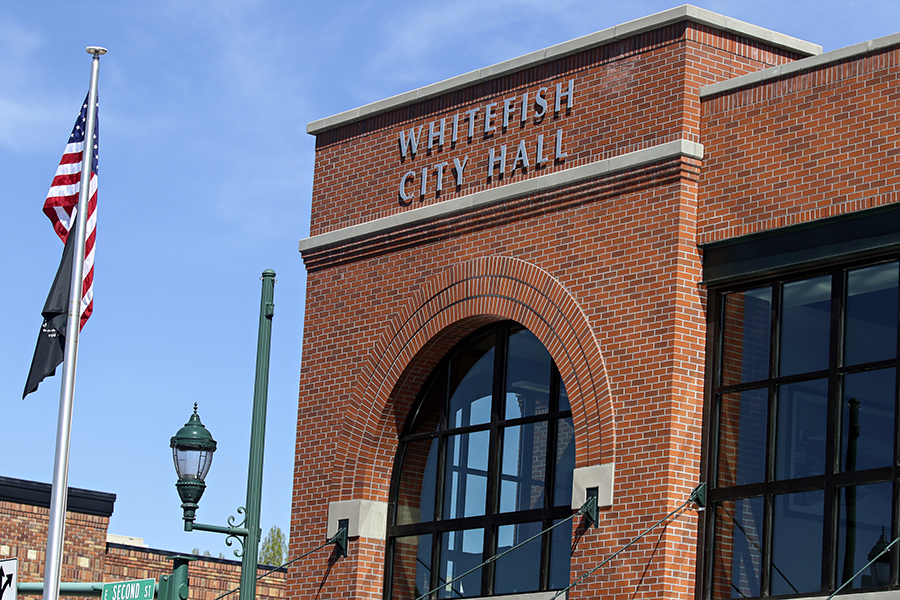Flathead County’s three largest cities recently received chunks of federal funding as part of the American Rescue Plan Act (ARPA), which Congress passed on March 11.
The ARPA appropriates $19.53 billion to states for distribution to tens of thousands of non-entitlement units (NEU) of local government, which includes cities smaller than 50,000 residents. Montana had 125 eligible cities based on 2019 population estimates, and on June 25, Gov. Greg Gianforte announced that 121 cities had received more than $43 million in ARPA funds. The funds are an initial distribution, accounting for roughly half of the total allocation for each NEU.
Whitefish was granted an initial distribution of $1,059,434.59, with a total expected allocation of $2.1 million, almost 4% of the city’s budget.
ARPA funds are intended to support cities during the continued recovery from COVID-19, and funding can be used to support public-health costs, including water and sewer infrastructure projects, and to help localities handle economic challenges, including resources to offer premium pay for essential workers “in recognition of their sacrifices over the last year.”
At its June 21 work session, the Whitefish City Council held preliminary discussions on potential uses of the allocated funds, while City Manager Dana Smith outlined possibilities to councilors.
“Infrastructure is one of the considerations, but what we can do to support affordable housing knowing it’s a serious problem in Whitefish and the surrounding area is at the forefront,” Smith told the Beacon.
Among the potential city uses presented was supplementing water, wastewater and storm sewer projects to reduce resort tax spending, boosting parks and recreation revenue, looking at property tax relief and addressing affordable housing shortages.
Councilor Steve Qunell emphasized his support for directing the funds toward affordable housing.
“As much of the ARPA money that we can set aside for that is prudent and I think we can make a solid case for the need for it,” Qunell said. “It’s helping the people at the bottom, which is what the ARPA money is for. The price of housing is a direct result of COVID and any extra money we have I think we should devote towards housing.”
Smith said research was underway to determine what strategies can be employed for funneling the money into affordable housing solutions, but pointed out that one of the biggest challenges in Whitefish was land values. Smith said discussions with the council would continue in July, and city officials hope to have a more definite plan by August.
In Kalispell, the first ARPA distribution was $3.1 million, again roughly half of the overall allocation. The funding was on the agenda for the council’s June 27 meeting, after the Beacon went to print.
A few projects on the agenda proposed by city staff to use the funds included sewer projects, storm water treatment upgrades and replacing the roof of a water storage tank.
In Columbia Falls, City Manager Susan Nicosia said the roughly $1.5 million in funds would be used for infrastructure upgrades.
“We’ll be using those funds to help us fund a required waste treatment plant upgrade and expansion that’s been in the works,” Nicosia said. “As well as putting some money into water, so the city of Columbia Falls will be using our federal dollars to do the projects we need without borrowing money, which will ultimately safe our citizens money.”
NEUs are not required to obligate funding until Dec. 31, 2024, and then all funds must be spent by Dec. 31, 2026.
